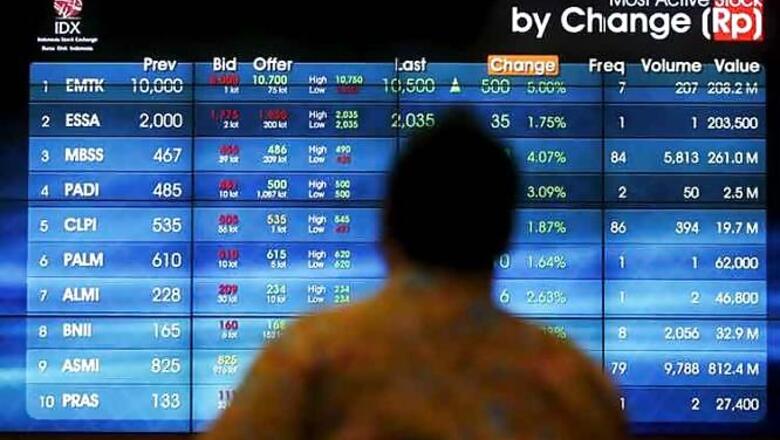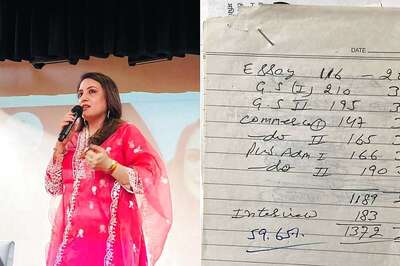
views
Beijing: Chinese stocks fell for the second day on Tuesday following the 8.49 per cent loss on Monday, which had devastated markets in India, the US and elsewhere over fears of hard landing of the world's second largest economy.
The benchmark Shanghai Composite Index fell 7 per cent to below the 3,000-points mark, official media here reported.
Monday's crash was the worst since 2007.
Eighty per cent of China's stock market is comprised of small investors who operate independently without aid of fund managers like elsewhere in the world.
The volatility of the market which started since June diluting about USD four trillion worth of capital made about 20 million to leave the stock market after heavy losses.
Chinese analysts generally attributed Monday's A-shares crash to investor disappointment with the People's Bank of China (PBC), the country's central bank, after it failed to announce an expected cut on the banks' reserve requirement ratio (RRR) over the weekend.
While the central government announced over the weekend a policy allowing no more than 30 per cent of net assets of USD 547 billion pension funds to be invested in the domestic stock markets, Guojin Securities said that it would have very a limited impact on the markets in the short term.
Chinese mainland stocks also took a severe hit from Wall Street, which suffered its steepest fall in nearly 4 years on Friday.
"Investors have been on high alert for signs of ebbing Chinese growth since the nation's central bank devalued the yuan earlier this month," UBS Wealth Management Global Chief Investment Officer Mark Haefele said.
"The disappointing economic numbers from China were made worse by a purchasing managers' survey from the US pointing to the weakest growth rate for manufacturing in nearly two years," state-run Global Times quoted him as saying.
Sun Wei, an associate prof at Peking University's School of Economics, said economic conditions in China and the US have largely determined how global financial markets perform.
"The US is expected to raise interest rates by the end of the year, while China is pushing forward with a series of financial reforms, such as the recent change to the yuan's daily official guidance rate against the greenback," Sun said.
"Given the importance of the two countries, any policy change from them may send shockwaves through the global financial markets," he said.
The current global financial turmoil is the aftermath of the 2008 crisis, said Xu Bin, professor of economics and finance at the China Europe International Business School.
"Developed countries used quantitative easing measures to deal with the financial crisis, leading to the global liquidity glut and massive capital inflows to emerging-market economies. As the US economy recovers, a rate hike is widely expected but the timing remains uncertain, causing global financial volatility," Xu told the Global Times.
















Comments
0 comment